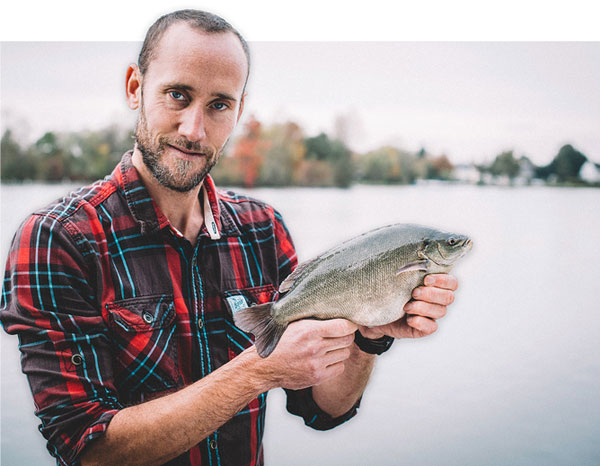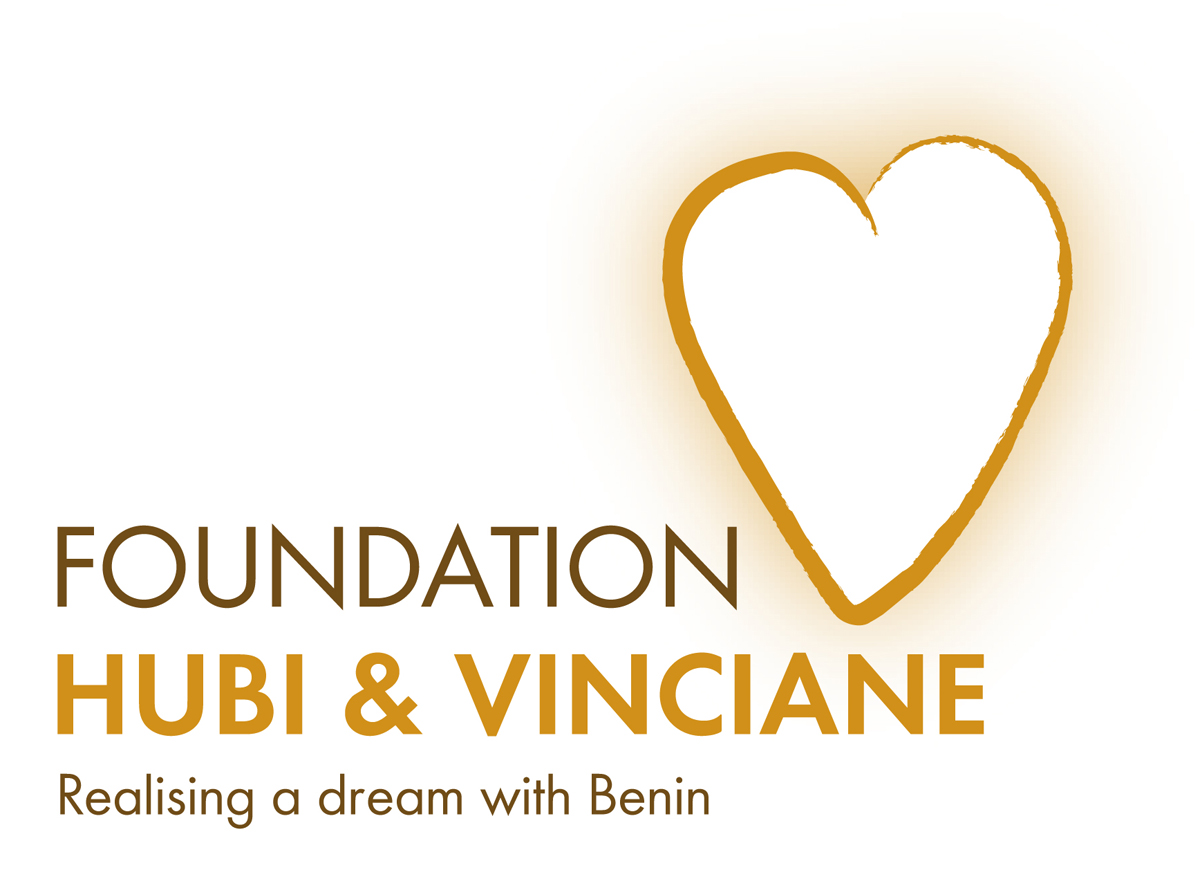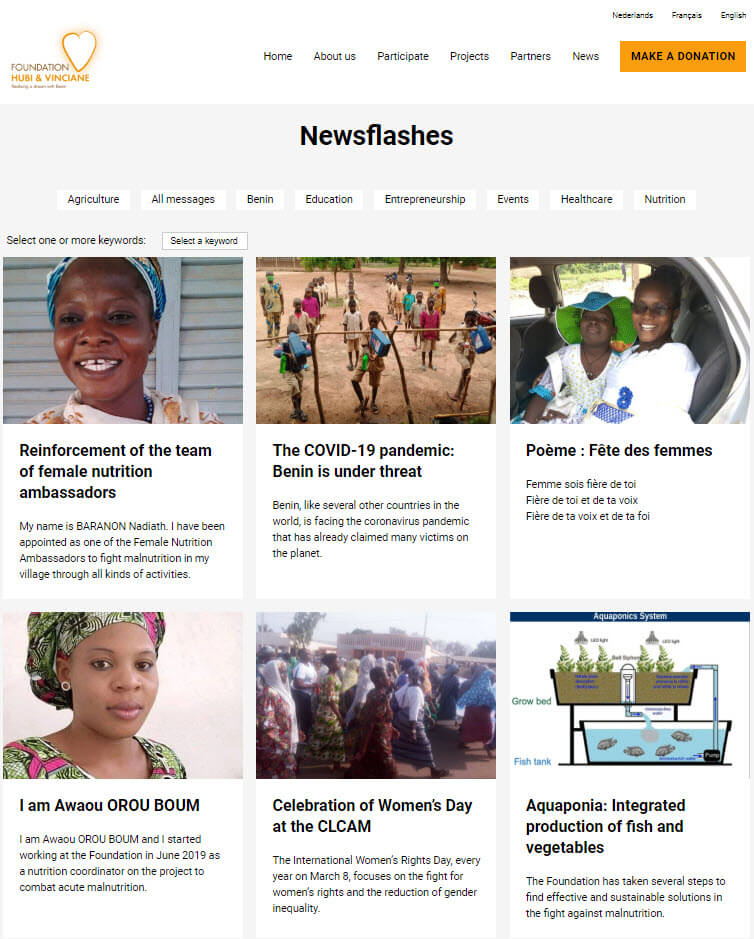Stijn Van Hoestenberghe, founder of Omegabaars, visiting our Foundation in Benin
At the end of 2019, the Foundation, in collaboration with the Faculty of Agriculture of the University of Parakou and the Centre de Formation Ferme Sokounon, our partner for the agricultural programme, launched the aquaponics pilot project. Aquaponics is a method of growing fish and vegetables in an ecological way through a symbiotic combination of aquaculture and hydroponics.
To explore the possibilities of aquaponics in Benin, the Foundation and its partners installed five pilot installations, purchased from the South African company La Pieus Aqua, on three different sites: two at the Sokounon Farm Training Centre, two at the Faculty of Agriculture of the University of Parakou and one at CIAP, the Centre d’innovaction de Parakou of our Foundation.
Professor Ibrahim Toko, director of the aquaculture and aquatic ecotoxicology research laboratory at the University of Parakou, is overseeing several research projects to optimise the application of the system and adapt it to the local Beninese context. A number of his students have developed a prototype made from local materials. The results of the research are promising and further tests in the coming months should lead to a system that is better adapted to the local needs of Benin. The aquaponics system is attracting a lot of interest from other universities as well as from local authorities.
“Now is the time to move to a larger scale”.
Together with professor Toko, we were very pleased that Stijn Van Hoestenberghe, PhD in bio-engineering and founder of one of the largest sustainable fish farms in the world, agreed to join us in Benin in April 2021.

After years of research around the world and a PhD at the KU Leuven on sustainable fish farming, Stijn founded the company Omegabaars in Kruishoutem. The omega perch raised are fed with 100% vegetarian fish feed, developed in collaboration with the KU Leuven. In addition, the fish farm does not waste water. Thanks to a revolutionary circular system, the fish farm is connected to a tomato farm: the greenhouses collect rainwater, filling the ponds for the fish.
The excess wastewater, rich in nutrients and containing fish excrement, is used to fertilise the tomato plants. In this way, water loss is avoided. The omega perch is currently available in most retailers such as Carrefour, Spar, Albert Heijn and Bioplanet shops.
Stijn visited the different pilot installations in Benin. He had many meetings with Professor Toko and his assistants. He also gave a well-attended lecture in which he stressed the importance of scale. In his view, pilot plants are perfectly suited to experiment, learn, adjust, and refine. In his opinion, the future lies in production on a much larger scale. He talks about ponds containing tons of fish combined with hectares of horticultural land. This approach will provide material for further research in the coming months and for new projects, the first of which were launched during his working visit.
Alexis Houdji, a researcher in Professor Toko’s team at the Faculty of Agriculture in Parakou, is closely involved in the aquaponics project. He confirms that it has a positive impact not only on the cultivation of fish and vegetables, but also on the environment.
Together with Stijn and Professor Toko, we also had a highly interesting discussion with Christian Guidibi, president of the Benin Fish Farmers Association. This organisation has over 800 members who are very interested in exploring the possibilities of combining fishponds with vegetable cultivation.
To conclude the special mission, the delegation was invited to an audience with the Minister of Agriculture, Gaston DOSSOUHOUI, to explain the aquaponics project.
The story of aquaponics will certainly be continued, also thanks to Stijn. The video report gives some impressions of Stijn’s visit to Benin in April 2021.

